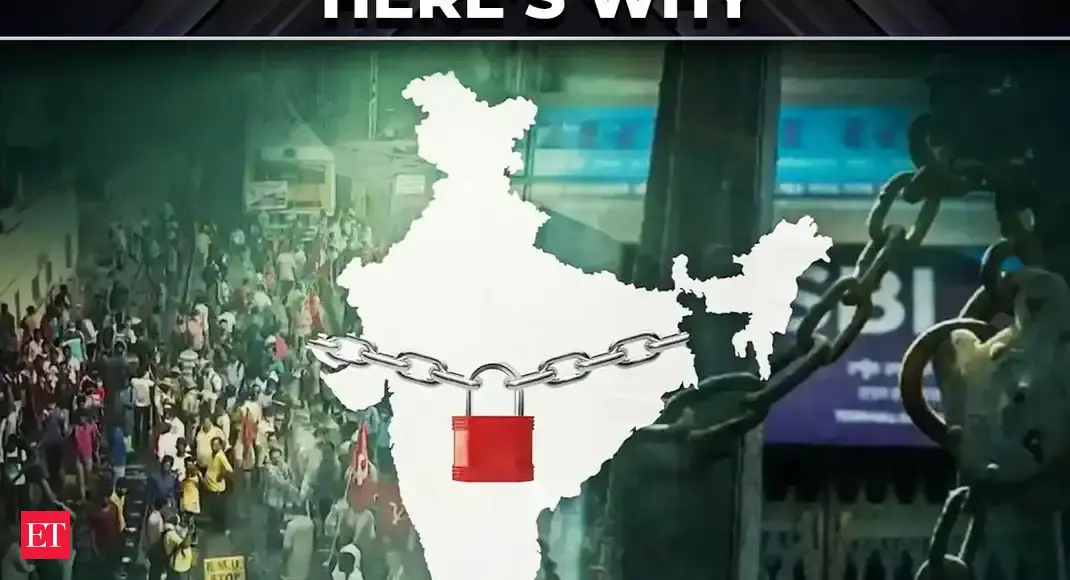India is bracing for a widespread Bharat Bandh on July 9, 2025, as over 25 crore workers from various sectors participate in a nationwide strike. Ten central trade unions, supported by farmer bodies and rural labor organizations, have called for the bandh to protest against the government's labor reforms, privatization push, and what they term "anti-worker, anti-farmer and anti-national pro-corporate policies".
Reasons for the Bharat Bandh
The trade unions are protesting against several government policies, including:
- Labor Reforms: The unions claim that the government is pushing through four labor codes that will weaken collective bargaining, cripple union activity, and favor employers in the name of "ease of doing business". They are demanding a reversal of these anti-worker laws.
- Privatization: The unions are against the privatization of public sector enterprises and public services. They argue that privatization leads to job losses and reduced access to essential services for the common people.
- Job Insecurity and Unemployment: The unions allege that the government's economic policies are deepening unemployment. They are also concerned about the increasing trend of outsourcing, contractorisation, and casualisation of the workforce.
- Inflation and Wage Suppression: The unions claim that rising prices of essential commodities are suppressing wages and reducing expenditure on education, health, and civic amenities, thereby widening inequality and burdening the poor, lower-income groups, and the middle class.
- Lack of Consultation: The forum stated that they had submitted a 17-point charter of demands to the Union Labour Minister Mansukh Mandaviya but received no concrete response. They also allege that the government has not conducted the annual labor conference for the past decade.
Impact of the Bharat Bandh
The Bharat Bandh is expected to disrupt key services across India. The following sectors are likely to be affected:
- Banking: Banking operations may be disrupted due to the strike.
- Transport: State transport services are likely to be affected. Train schedules could also be impacted by roadblocks or demonstrations.
- Coal Mining: Coal mining activities are expected to be disrupted.
- Postal Services: Postal services are likely to be affected.
- Electricity: Electricity services are expected to be disrupted.
Essential services
While the strike is expected to cause widespread disruption, some services may remain partially functional. Schools and colleges are likely to remain open. Private offices and businesses may also continue to operate.
The 24-hour bandh is scheduled to begin at 6 AM on July 9 and will extend until 6 AM on July 10. Participants are expected to begin demonstrations and halt work from the early hours of July 9, with activities resuming post-strike on July 10.

